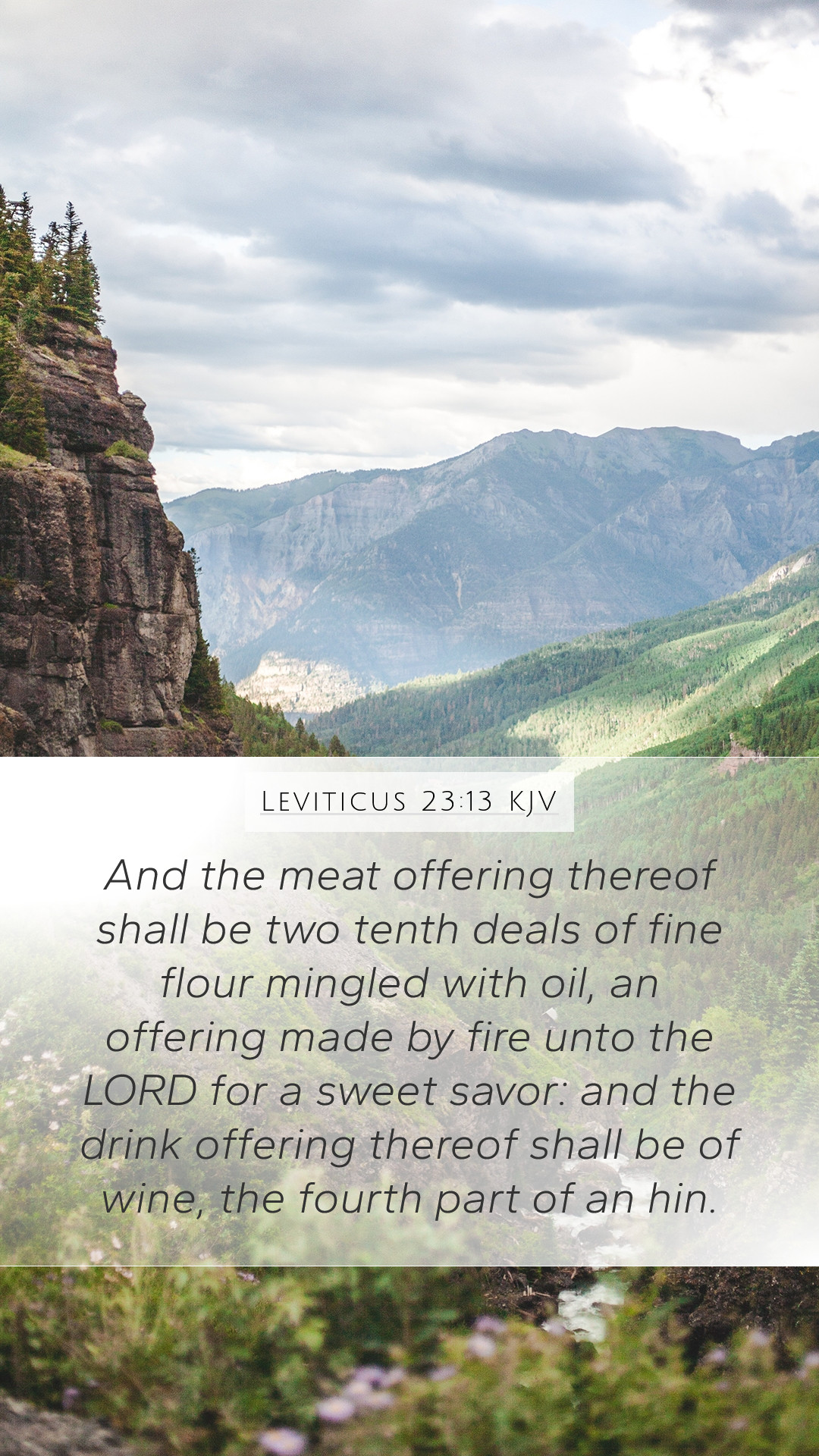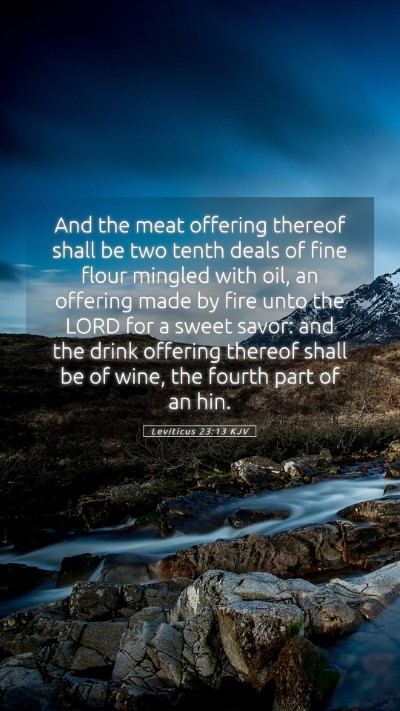Bible Verse Explanation: Leviticus 23:13
Leviticus 23:13 states: "And the meat offering thereof shall be two-tenth deals of fine flour mingled with oil, an offering made by fire unto the LORD for a sweet savour: and the drink offering thereof shall be of wine, the fourth part of a hin." This verse provides specific instructions concerning the offerings made during holy times, reflecting God's detailed requirements for worship.
Understanding Leviticus 23:13
The interpretation and understanding of Leviticus 23:13 highlight the importance of offerings in the Israelite worship system. Matthew Henry remarks that this verse signifies the necessity for worship to be conducted according to divine specifications. Adam Clarke notes that the offerings symbolize the acknowledgment of God's provision and grace.
Main Insights from Commentaries
- Matthew Henry: Henry emphasizes that the offerings (both meat and drink) illustrate the completeness of worship, involving the best of one's resources offered to God. He states that a “sweet savour” symbolizes God's acceptance of the offerings.
- Albert Barnes: Barnes adds that the measurements provided are significant; they encapsulate the legal requirements that the Israelites were to follow meticulously. This attention to detail in offerings showcases God's order and the reverence required from His followers.
- Adam Clarke: Clarke highlights the symbolic meaning of the fine flour and oil, attributing the flour to the purity and richness of the offerings, and the oil as a representation of the Holy Spirit, which enhances the spiritual essence of the sacrifices.
Analysis of the Verse
This verse, along with the previous and following verses in Leviticus 23, outlines the Feast of Weeks (Shavuot), a celebration of harvest and a recognition of God’s sustaining power. The offerings serve to both glorify God and unite the community in worship.
Key Themes and Symbolism
- Offerings as Worship: The act of providing offerings signifies an individual's dedication to God, demonstrating gratitude for His blessings.
- Community and Celebration: The stipulations for offerings suggest that these communal acts of worship were central to Israelite identity, fostering community bonds.
- God's Holiness: By outlining these offerings in detail, the verse reinforces the concept of God's holiness and the need for His people to approach Him with reverence.
Application of Leviticus 23:13 in Daily Life
When considering the application of Leviticus 23:13 in contemporary worship, it suggests the importance of approaching God with intentionality and offering the best of ourselves in service and love. It calls for introspection about how we contribute to our own worship practices, whether through time, talent, or resources.
Relevance in Study Groups
This verse can serve as a central topic in bible study groups, promoting discussions on the significance of offerings, God’s requirements, and how these practices can be translated into modern expressions of worship.
Related Cross References
- Exodus 29:23: Guidelines for offerings to God.
- Numbers 15:5: Further instructions on drink offerings.
- Hebrews 13:15: A New Testament perspective on offerings of praise.
Conclusion
Understanding and interpreting Leviticus 23:13 provides profound insights into the principles of worship and the nature of offerings in the biblical context. It encourages a deeper exploration of our relationship with God and how we can express our gratitude through worship today.


